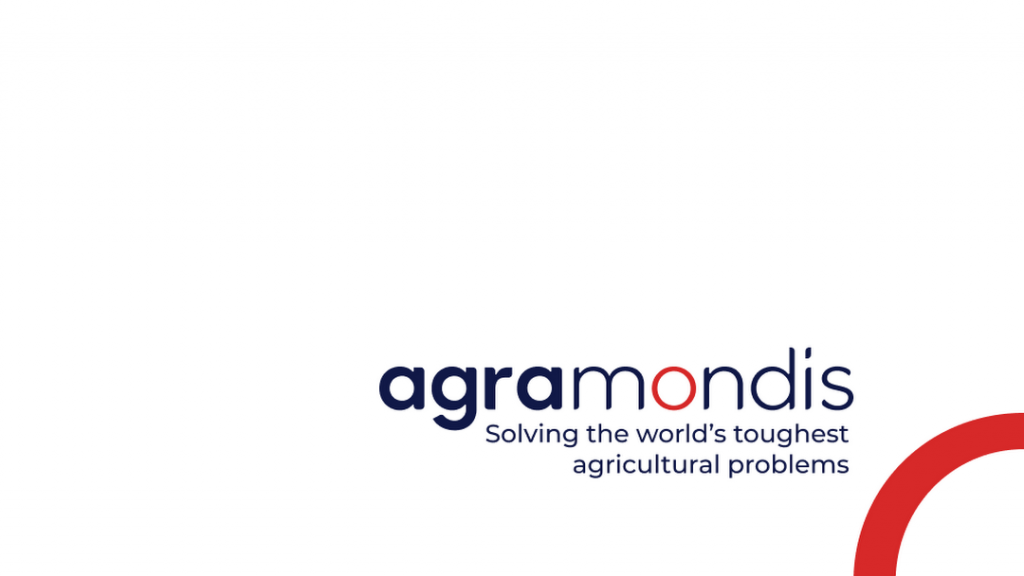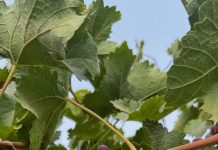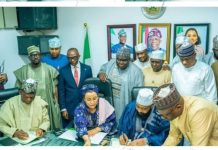Tell us more about Agramondis?
Agramondis is a boutique consulting firm specializing in agriculture, development and agribusiness. Although a young company, our consultants have many years of international experience in these areas and have worked with some of the largest brands and names in food, agri-finance and development. Head-quartered in Nigeria, we are also present in Kenya and Europe and focus on frontier agricultural markets in Sub-Saharan Africa, Asia and Eastern Europe. Agramondis provides services in three principal areas
- Data and research
- Technical expertise in agronomy, rural development, food industry and agri-finance
- Strategy and sustainability.
Most of our clients come from the development, food and farming, and finance sectors. (We’re happy to do some name-dropping here, should it interest your audience).Agramondis is a values-led company. We act by, and hold ourselves publicly accountable to, a set of simple values:
• Intelligence: We’re disruptive thinkers, problem solvers and believers in human ingenuity and experiential learning.
• Integrity: We are honest, transparent, authentic and independent in our advice.
• Care: We care for the success of our clients, the happiness of our people, the thriving of our communities and the health of our planet.
As a player in agriculture ecosystem, can you say that Nigeria is in the right track to food sustainability?
Nigeria’s agricultural sector is incredibly dynamic. While most farmers are still subsistence producers for whom farming is a necessity, rather than a business, there is a growing share of entrepreneurial farmers, agribusinesses and innovators – small, medium and large – who start influencing the sector and how it is perceived. We believe that the coming 5 year will decide which path Nigeria’s agricultural and food sector will take: One that is following the ‘Green Revolution’ with high productivity but high chemical inputs and high ecological costs; one that remains mostly static, with many subsistence-level smallholders and pockets of large-scale farming; or a third way, which combines innovation and technology with more ecological and regenerative ways of farming. Nigeria, has the exciting opportunity to choose which path it favours and how sustainable a food system it would like as a consequence.

Do you collaborate with government, if yes, at what level?
Agramondis welcomes the opportunity to work with businesses, NGOs, IGOs and governments alike. We are very open to collaboration of any sort with government and non-governmental organisations.
Can you define your service as interventionist in approach?
That’s a political term and one that for many has a negative connotation. Agramondis is mission driven – we want to take on the big agricultural challenges of our time: food security, poverty, health, climate change, and environmental sustainability. We want to give our clients solutions that are the best for them as well as for people and the planet. That’s why we love working with clients whose missions inspires us and where we feel that what we do moves the needle. So, interventionist? No. Mission-led: definitely.

Youths hate farms and farming especially in Nigeria, how can this be changed?
Many people’s experience of farming is one of drudgery, insecurity and disempowerment. As mentioned, many farmers do not farm out of choice but out of necessity. But there are an increasing number of people who consciously chose farming as a business, seeing both the need and the opportunity. A large share of these people are young, well-educated and motivated by the prospect to better both their country and themselves. Some of their companies have become beacons of agripreneurial success, like Babban Gona, Farmcrowdy and HelloTractor; but there are hundreds, maybe thousands that are less visible, yet do an equally remarkable job. By seeing and celebrating these new farmers, their efforts and successes, we can create a powerful new narrative of farming, which does not stand back behind any other professional career. Agramondis is currently undertaking the first Nigerian Agribusiness Leaders Survey, an attempt to take stock of the sector and to learn what makes businesses, tick, succeed and how they think the country is doing in agricultural policy.
Mechanization is key but expensive, do you think we can make it out of the wood without mechanization?
The keyword is professionalisation. Mechanisation is a component but will follow whichever farming system one choses. That may be large tractors. But there are also highly productive and highly profitable integrated small-scale farms that use no or minimal engine power. Instead they rely on more human-scale technology. Examples exist from South East Asia to Canada and from Uganda to – yes – Nigeria. So mechanisation can take many forms. In all of these cases, by the way, mechanisation is cheaper than human labour.
In a study on agricultural mechanisation that Agramondis is currently conducting, we find that one of the challenges in Nigeria is the lack of financing structures for larger agricultural assets like tractors. In Europe, Thailand or Brazil, farmers pay down 10% of a tractor and get a dealer credit for the rest that they pay off over the following years. In Nigeria, tractor buyers have to put 100% of the price on the table. Commercial banks are reluctant to offer movable asset finance. Cooperative structures are and alternative. Or peer-to-peer financing platforms like ThriveAgric and Crowdyvest, whose success is not least built on the lack of formal finance for the agricultural sector.
Another issue is that once a tractor is bought, it’s often difficult to get spares and repairs: The typical lifespan of a tractor in Nigeria is 6 to 7 years. In other parts of the world it’s 10 to 20 years. So training mechanics to be able to keep tractors running is another piece in the mechanisation puzzle.

And why not have tractors produced, sold and serviced in Nigeria?
Maybe in license. Thailand has half of Nigeria’s land mass and a third of its population but five tractor manufacturers, whereas Nigeria has none.
Do you think that land ownership system has an impact in agriculture in the country?
Land ownership is definitely complex in Nigeria. Whether it will hamper the development of a professional farming sector depend on the local circumstances.
Commodity pricing has affected farmers adversely, how can this be changed?
Nigeria should seek to move towards greater food self-sufficiency. That’s neither new nor will many people contest it. If Nigeria would produce more if its food domestically, it would create jobs and income in farming and processing, and make food prices less vulnerable to swings in the Naira exchange rate.
The question is, how to increase food production in Nigeria?
In our Nigerian Agribusiness Leaders Survey, we see a maybe surprising answer: What agribusinesses want most from the government are roads and a coordinated stable policy framework. In other words, they ask the government to do what the government to do its job, so they can do theirs.
What should we anticipate from you in 2021?
We had a tough time in 2020, where many of our clients put projects on halt for six months or so because of the covid-19 pandemic. We use the time to build our profile and strengthened our foundation and are proud to have emerged from the standstill in the last quarter of the year with some very large and exciting projects. We intend to keep growing in 2021 together with the Nigerian agribusiness sector. In January, we’ll publish the mentioned Nigerian Agribusiness Leaders Survey (and until then people can still participate). We’ll also launch a couple of exciting new products in the course of the year, to enable both agribusiness start-ups and larger investors get tailored but affordable advice.
Agramondis is mission driven – we want to take on the big agricultural challenges of our time: food security, poverty, health, climate change, and environmental sustainability.








